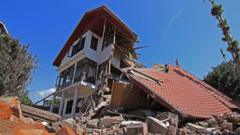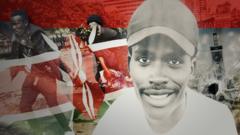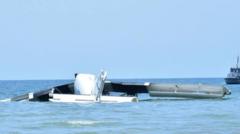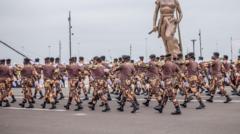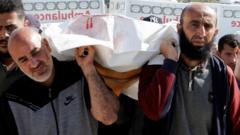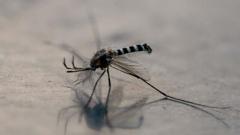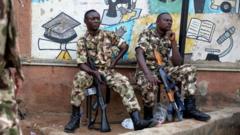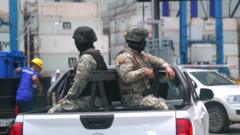In a surge of violence attributed to armed groups, Colombia's security forces have faced unprecedented assaults, claiming the lives of 27 officers and soldiers within a fortnight.
Targeted Assaults on Colombian Security Forces Result in 27 Fatalities in Two Weeks
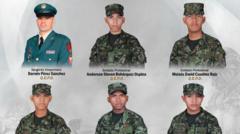
Targeted Assaults on Colombian Security Forces Result in 27 Fatalities in Two Weeks
Recent attacks on police and soldiers signal escalating violence amidst failed peace negotiations.
Over the past two weeks, Colombia has witnessed a shocking surge in violence, targeting its security forces as 15 police officers and 12 soldiers have been killed in what the government describes as organized attacks. President Gustavo Petro attributed these assaults primarily to the Gulf Clan gang and other armed groups, claiming they are retaliating for the recent elimination of several of their leaders.
Most notably, six soldiers were discovered in Guaviare following a deadly ambush, where a seventh soldier's body was later found, indicating a coordinated and brutal strategy against Colombia's military. As the situation worsens, the government has initiated a reward system for information leading to the apprehension of those responsible for these attacks.
President Petro, who came to power promising "total peace" for Colombia, faced mounting pressure as his interior minister conceded that the peace strategy was failing, particularly after the breakdown of negotiations with groups such as the Gulf Clan. In an alarming development, Petro published a list of fallen security personnel on social media, highlighting a systematic targeting of 15 police officers and 12 soldiers since April 15. The released information revealed that 10 of the slain police officers were on duty at the time of their deaths.
The ambush in Guaviare province, which resulted in the deaths of seven soldiers, has been attributed to dissident Farc groups, a faction that has remained active despite a 2016 peace agreement with the government. While the majority of Farc members disarmed, a splinter group continues to challenge state authority and military presence.
To establish stability, Petro's regime has engaged in discussions with various armed groups, including the National Liberation Army (ELN) and the Gulf Clan. However, peace negotiations suffered a setback in January when Petro accused the ELN of lacking enthusiasm for a peaceful resolution, which contributed to the cessation of ceasefire agreements with the dissident Farc faction in April.
The tension escalated as police operations against Gulf Clan leader, “Chiquito Malo”, reportedly triggered retaliatory violence. Although he escaped an attack, other high-profile gang members, including “Terror”, fell victim to law enforcement, prompting the Gulf Clan to issue directives for the execution of both on-duty and off-duty police and soldiers.
As Colombia grapples with these violent developments, many question the prospects for sustainable peace and stability amidst growing unrest.


